Making water limpid again : five projects around the world cleaning our water sources
If the Earth’s 4.5 billion years of existence were condensed into 24 hours, humanity would only appear at 23:45, and the industrial revolution two seconds before midnight, the equivalent of two heartbeats. It’s only a fraction of time, yet it was enough to modify the surface of the planet dramatically: the levels of available fresh water worldwide decreased by 83 percent between 1970 and 2014. According to the United-Nations, more than 80 per cent of wastewater resulting from human activities is discharged into rivers or seas without any pollution removal. Fortunately, women and men around the world are undertaking initiatives to save the blue gold. Discover these five projects sharing trying to tackle water pollution #EarthBeats.
The Billion Oyster Project cleans up New York Harbor
Oysters are more than just a popular appetizer. They are known for their positive inputs on their ecosystems: they can break storm surges that could devastate the coastline, their reefs provide habitat for a variety of aquatic species and they are able to filter nitrogen from the water in high quantity! A single adult oyster can purify 190 litres of polluted water per day, removing both sediment and nitrogen as it eats. That is why The Billion Oyster Project seeks to harness oysters in the New York Harbor to clean up its waters, engaging the local community to help as well. Since it started in 2014, the project has placed around 28 million oysters in the harbor, recycled 453,592 kilogrammes of shell, and engaged 75 restaurants and 70 schools in its initiative. The goal of the project is to place 1 billion oysters into the harbor by 2035. Discover this innovative project in the CS Monitor, Yicai Global, Haaretz, The Philippine Star (in English), and in L’ Economiste (in French).
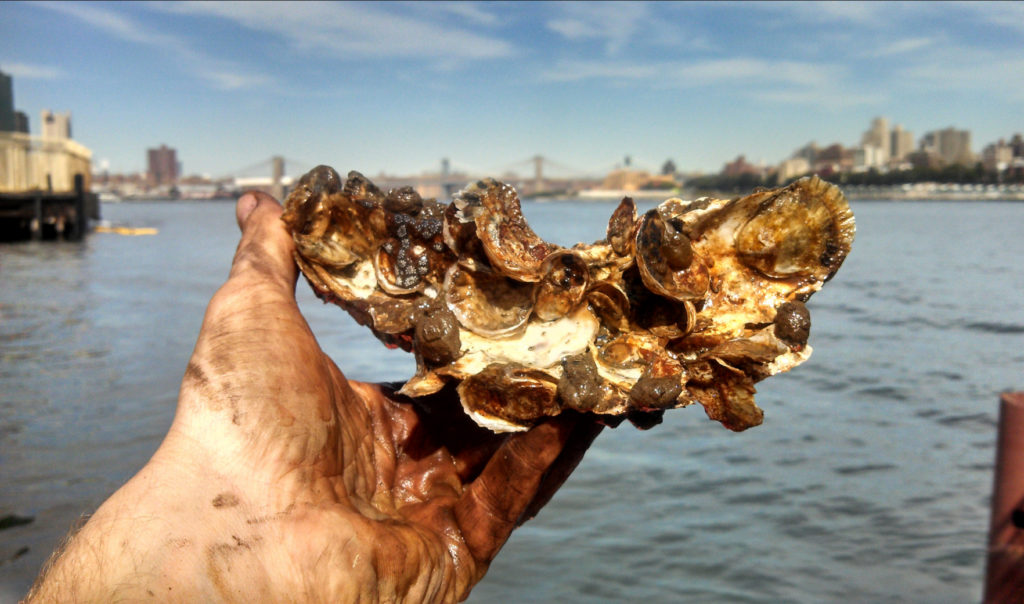
With TransOceanic Wind Transport (TOWT), sailing offers an alternative to highly-polluting maritime transport
According to the International Council on Clean Transportation (ICCT) the entire maritime fleet emitted nearly 932 million tonnes of CO2 in 2015 and this number is not decreasing. In an effort to make this sector greener, French company TOWT (TransOceanic Wind Transport) is working to rehabilitate container cargos under sail. Sailing propulsion for maritime trade not only reduces transport-related CO2 emissions but also fights sea pollution, avoiding the risk of fuel leaks into the ocean. To identify and promote goods transported by sail power, the group has created the label “Anemos,” ancient Greek for “the wind”, with a tracking travel number and information on the product’s carbon footprint. Sailing freight is only slightly more expensive than conventional transport, making the products are a bit more expensive, “roughly 10 cents more per bottle of wine, for example” according to Guillaume Le Grand, president of the shipping company. The company is now investing in a future three-masted ship, which will be able to carry 1,000 tonnes of cargo at a cruising speed of 11 knots — a similar speed as cargo ships that pollute. “Once in the water, the Cargo Sailboat will save more than 10,000 tonnes of CO2 per year and more than 300,000 tonnes over its lifetime” calculates Le Grand. Read more in The Nation, Haaretz, Yicai Global, and in L’Economiste (in French).
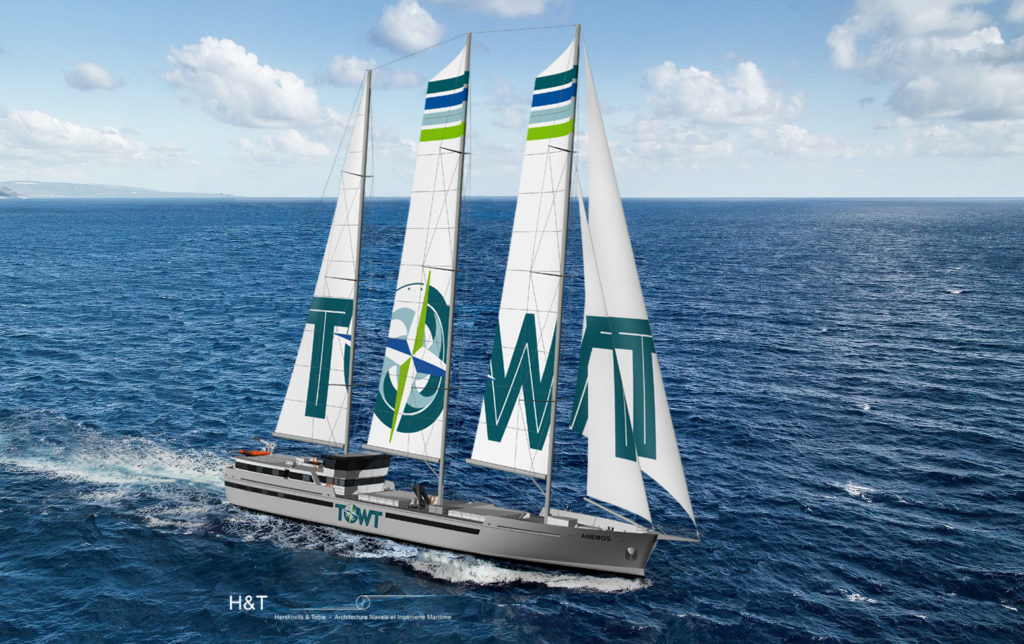
Using bacteria and blockchain to clean up oil spills in Nigeria
An estimated 13 million barrels of crude oil have been spilled in the Niger Delta since 1958 from over 10,000 oil spill incidents, devastating one of the most biodiverse places on the planet. Chinyere Nnadi, a local entrepreneur, was convinced the problem was due mainly to corruption and lack of accountability so he launched the first project to leverage blockchain to clean the polluted Niger Delta region. Developed by a research team led by Nnadi’s mother, Dr. Fidelia Nnadi, at the University of Central Florida School of Engineering, he used Bioclean, an organic, non-toxic, bacteria-based technology that restores contaminated sites in less than 30 days. This technology destroys the availability of hydrocarbons at a molecular level and leaves behind nutrients that catalyze the ecosystem’s restoration. In 2012, the biotechnology was successfully used in the Colombian town of Chinácota to decontaminate its soil, water and vegetation in four weeks after an oil duct fracture. Blockchain provides a transparent, instantaneous and indisputable record of transactions, fostering trust among stakeholders and ensuring that local workers get a fair salary for their work. Learn more about this initiative in Haaretz, The Nation, and The Philippine Star.
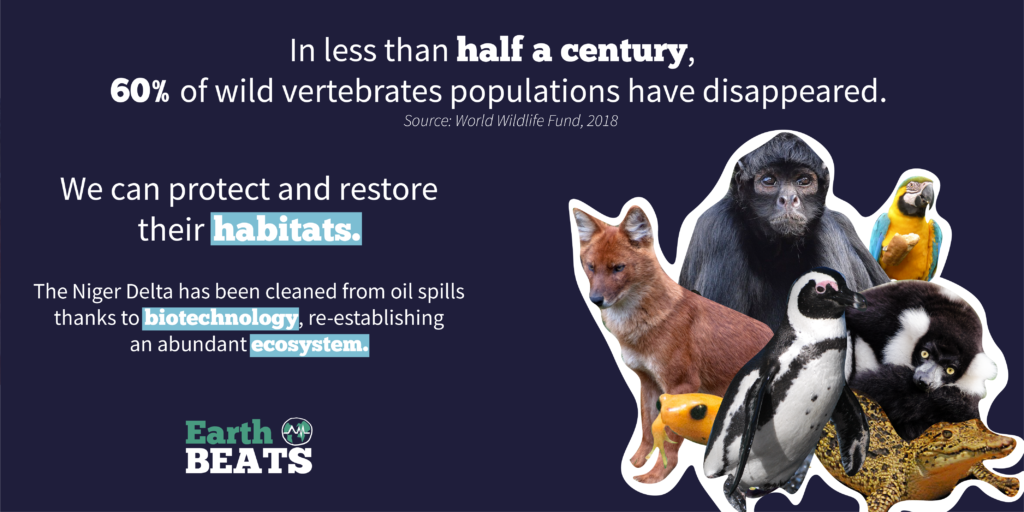
Aqwind : algae is cleaning water one drop at the time
Only 10 percent of people on Earth have access to safe water. That means 90% have to drink foul water, at a vast cost to their health. By adding aquatic weeds to the equation, Aqwind, an Israeli startup developed a low-cost solution. The company’s trick is to use algae to provide oxygen for the germs breaking down our waste to breathe, rather than break the bank pumping in the gas. Algae, as other plants do, breathe in carbon dioxide during the day and breathe out oxygen. Thus Aqwind reduced the energy requirement in water treatment by 70% to 90%. The product of this process is water clean enough for agriculture but isn’t recommended for drinking. Unveil the whole process in Haaretz, The Nation, and The Philippine Star.
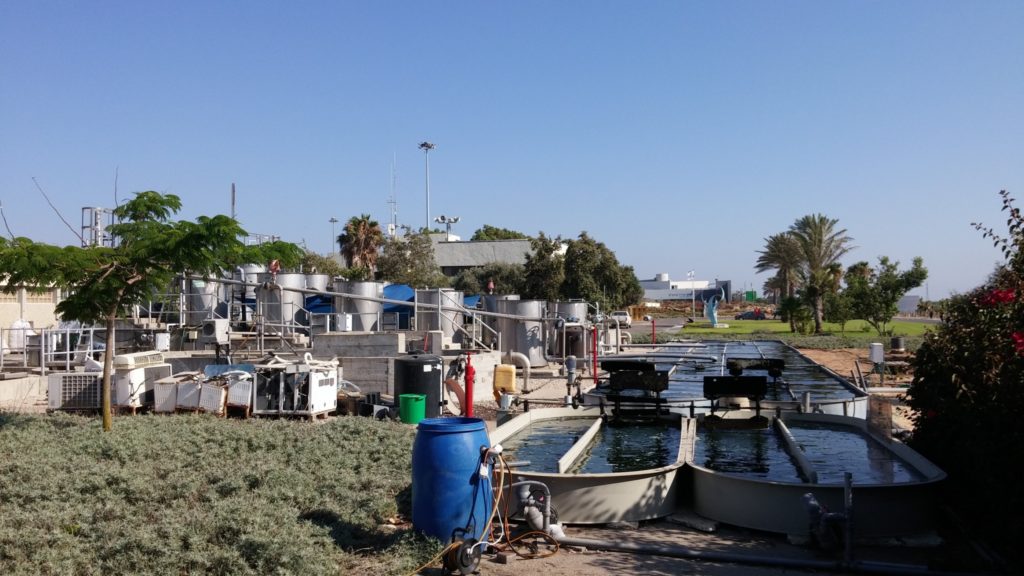
Green laundries are saving Moroccan oases
In the Tafilalet oases of southern Morocco, five municipalities have moved from traditional ways of washing clothes to more ecological laundries. Dubai The use of cleaning products (bleach, chemical laundry detergent) in collective laundries has had a negative impact on water quality downstream of the watercourse. Even more serious, this washing water, by filtering effect in the ground, reaches the level of the khettara, which is the reservoir used to supply the wells. To address the situation and safeguard the khettara, the nonprofit French association L’Eau Du Désert (“Water of the Desert”), in collaboration with local associations, has helped the population of five oases set up modern collective laundries. Since, farmers are noticing a gradual reduction of chemicals in irrigation water and oasis soils. According to local associations, the water quality of the khettara has improved and the nauseating odors have disappeared. Read more in The Hindu (in English) and L’Economiste (in French).
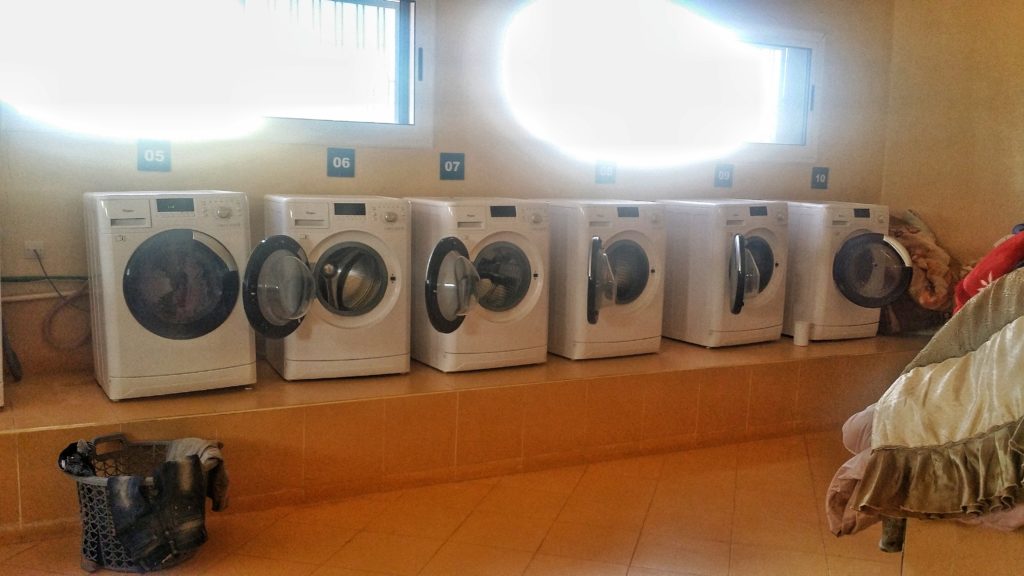

While citizens mobilize for Earth Day, 18 media outlets investigate local initiatives against pollution and waste. The collaborative editorial operation Earth Beats gathers renowned newspapers: including Le Figaro, Corriere, Haaretz, L’Economiste, La Nacion, Yicai Global, Delo, L’Orient Le Jour, The Philippine Star and The Hindu and more. The operation is coordinated by Sparknews with the support of ADEME, the UNESCO MAB Programme, Le Jour de La Terre, Impact Hub and CDC Biodiversité.
You, readers, citizens, leaders, investors, consumers, can broadcast these solutions, so that tomorrow’s world remains sustainable.





